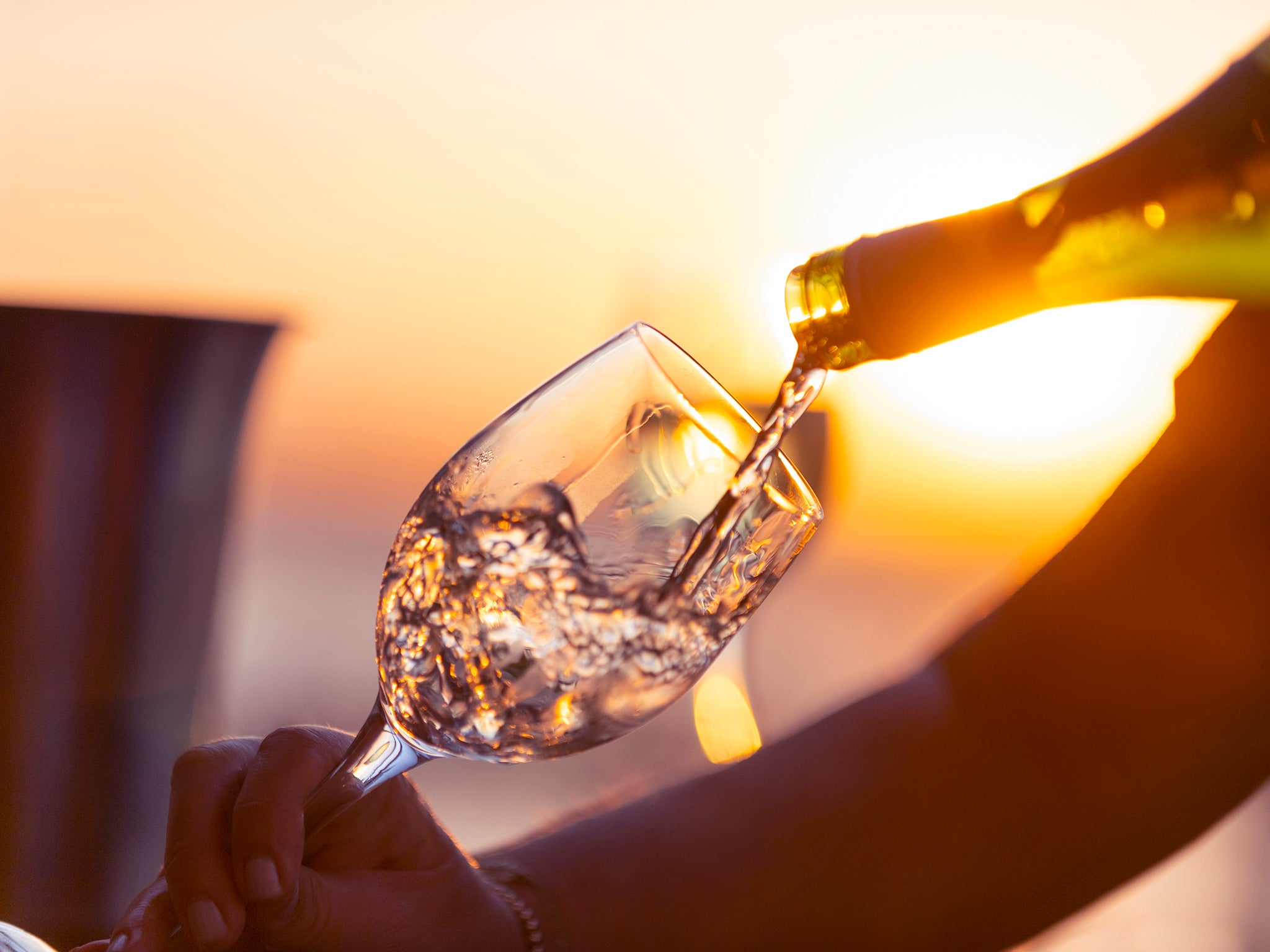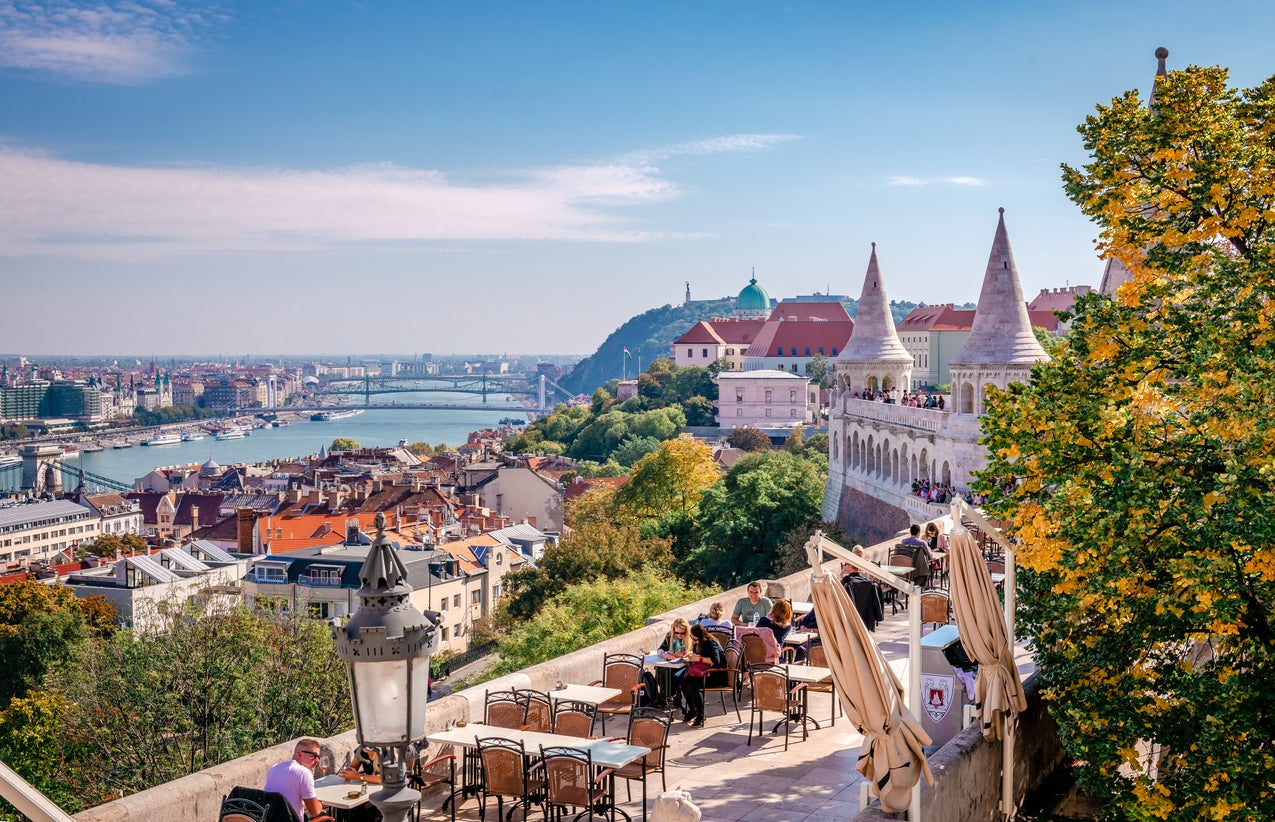White wine under threat as heatwave hits Europe
Winemaking regions have seen an increase of 25% in growing degree days

Your support helps us to tell the story
From reproductive rights to climate change to Big Tech, The Independent is on the ground when the story is developing. Whether it's investigating the financials of Elon Musk's pro-Trump PAC or producing our latest documentary, 'The A Word', which shines a light on the American women fighting for reproductive rights, we know how important it is to parse out the facts from the messaging.
At such a critical moment in US history, we need reporters on the ground. Your donation allows us to keep sending journalists to speak to both sides of the story.
The Independent is trusted by Americans across the entire political spectrum. And unlike many other quality news outlets, we choose not to lock Americans out of our reporting and analysis with paywalls. We believe quality journalism should be available to everyone, paid for by those who can afford it.
Your support makes all the difference.Hungary’s record temperatures has forced some of the country’s winemakers to start harvesting grapes in early August, up to a month earlier than usual.
Climate change is having a severe impact on Hungary’s acclaimed winemaking industry, as rising temperatures could make the country too hot for producing white wine, including the renowned Tokaji, scientists say.
“I do not remember ever harvesting this variety of grape this early... we are at least a month early,” said Laszlo Kerek, a 35-year-veteran of grape growing in Balatonlelle, south of Lake Balaton in western Hungary. Kerek, who was harvesting grapes with his family in early August by hand, attributes the early harvest to “nothing else but climate change.”
A National Meteorological Service report revealed that this July was Hungary’s hottest since temperature tracking began in 1901.
Hungary’s winemaking regions have seen an increase of 25% in growing degree days, a metric denoting heat accumulation until crops reach maturity, according to Peter Szabo, a climate scientist at Eotvos Lorand University.
“Our models show that growing degree days will keep rising, and Hungary’s climate will then no longer be ideal for white wine,” Szabo said.

He suggested that Hungarian wine producers, over two-thirds of whom produce grapes for white wines, may need to adapt and switch to producing red wine, a variety more suitable for warmer climates.
Hungarian winemakers, however, think that they will be able to adapt to the changing climate and keep producing traditional white wines with a few changes in the coming decades.
“It looks like we will be the new Mediterranean region... so, this shift might not necessarily be unwelcome for Hungarian winemaking, but we need to adapt,” said Peter Varga, owner of the Varga Winery in Badacsonyors, also by Lake Balaton.
His winery, which sells 15 million bottles annually, is already implementing strategies to minimize direct sunlight exposure for grapes and considering planting new vines on east-facing slopes instead of south-facing ones.
Winemakers in the Tokaj region in eastern Hungary, famous for its signature sweet, late-harvest Tokaji wines, are also concerned about hotter summers.
Cool and humid October mornings are vital for their grape growing, Andras Kanczler, winemaker at the small Basilicus winery said. However, he added, “the risk posed by unpredictable fall weather can be a bit lower if grapes ripen earlier.”
Join our commenting forum
Join thought-provoking conversations, follow other Independent readers and see their replies
Comments